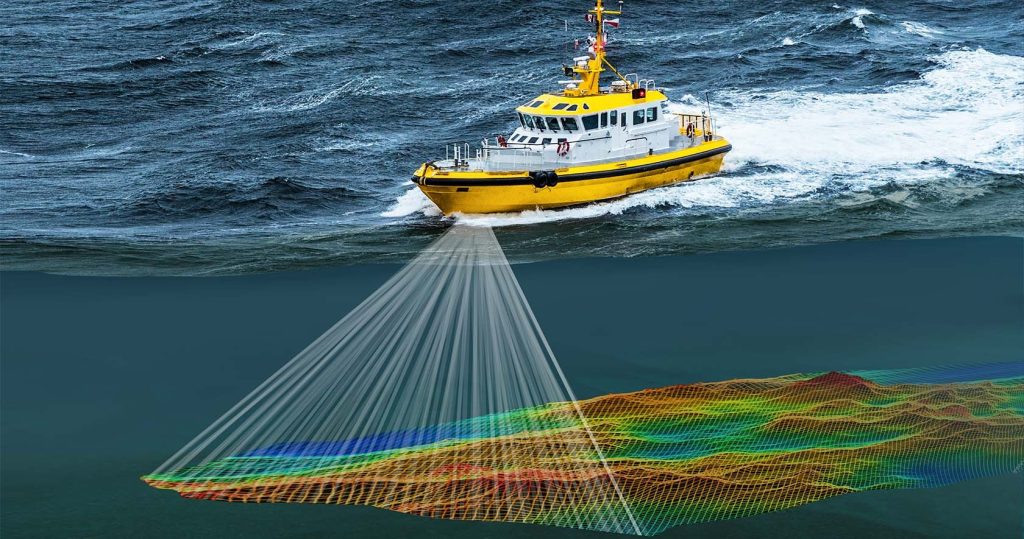Imagine navigating the vast oceans without a map, charting unknown waters with nothing but the stars to guide you. This was the reality for sailors for millennia until the advent of hydrography, the unsung hero of maritime exploration and safety. World Hydrography Day, celebrated on June 21, shines a spotlight on this crucial science, which has not only mapped the depths of our planet's waters but also ensured that mariners can sail from point A to point B without running aground. From the ancient seafarers of the Mediterranean to the explorers of the Age of Discovery, hydrography has been pivotal in expanding our understanding of the world's oceans, lakes, and rivers. It's a field where science meets adventure, blending the precision of measurement with the thrill of exploration. Hydrographers have charted unknown territories, discovered new landmasses, and played a key role in the development of global trade routes. Without their contributions, the history of human exploration, commerce, and even warfare would look very different. As we celebrate World Hydrography Day, let's dive into the depths of this fascinating science and its impact on history, navigation, and our relationship with the world's waters.
Key Takeaway
Timeline
Day Activities
-
Morning Launch: Kick off World Hydrography Day with a splash by joining local waterfront clean-ups or educational workshops. These activities shine a light on how hydrography plays a pivotal role in understanding and preserving our waterways. Perfect for families and individuals alike, it's a hands-on way to dive into the day's significance.
-
Afternoon Adventures: Set sail on an afternoon of discovery with guided boat tours that navigate the fascinating world of hydrographic science. Participants get a firsthand look at the tools and techniques used in modern hydrography, from sonar mapping to water sampling, making complex concepts accessible and engaging for all ages.
-
Evening Reflections: Wrap up the day with a series of talks or a film screening that celebrates the unsung heroes of hydrography and their groundbreaking expeditions. These narratives not only highlight historical milestones but also underscore the ongoing importance of hydrographic work in safeguarding maritime navigation and global water conservation efforts.
Interesting Facts
1. Origins in Ancient China
Hydrography dates back to the 3rd century BC in China, marking its ancient roots.
2. Age of Exploration Boost
The 15th and 16th centuries' explorations significantly advanced hydrography for safer sea navigation.
3. Creation of Hydrographic Offices
In the late 17th century, nations began establishing hydrographic offices, enhancing maritime safety and navigation.
4. Technological Advances in the 19th Century
Advancements like the sounding line revolutionized hydrography, leading to more accurate maritime charts.
5. Modern Applications Beyond Navigation
Today, hydrography is crucial not just for navigation but also for environmental and military applications.
Why We Love This Day
-
Celebrating the unsung heroes of the seas
Oh boy, isn't it just fascinating how World Hydrography Day shines a spotlight on those behind-the-scenes wizards? These folks chart the murky waters, ensuring sailors and cargo ships don't end up taking an unplanned dive. It's like giving a high-five to the mapmakers who've kept seafarers from saying "oops" for centuries. Their work's as crucial today as it was during the Age of Exploration, making sure our goods get to us without a hitch. -
Highlighting the science that connects us all
Now, here's the thing: hydrography isn't just about avoiding underwater mountains. It's the glue holding together global trade, environmental protection, and even our safety at sea. On June 21, we're reminded of the invisible threads—currents, tides, and depths—that tie our world together. It's a nod to the fact that, whether we're shipping smartphones or exploring new frontiers beneath the waves, we're all in the same boat, thanks to hydrography. -
A day for future ocean explorers
Let's not forget the kiddos dreaming of marine adventures or the tech whizzes creating the next big thing in underwater drones. World Hydrography Day isn't just about looking back; it's a beacon… oops, can't say that. It's a lighthouse guiding future generations. It sparks curiosity about our blue planet and encourages innovation in how we understand and navigate our oceans. So here's to inspiring the next wave of explorers, scientists, and environmental guardians!
Past & Future Dates
| Month | Day | Year |
|---|---|---|
| JUNE | 21 | 2022 |
| JUNE | 21 | 2023 |
| JUNE | 21 | 2024 |
| JUNE | 21 | 2025 |
| JUNE | 21 | 2026 |
| JUNE | 21 | 2027 |
| JUNE | 21 | 2028 |
FAQ
Why is World Hydrography Day celebrated?
On 21 June each year, the International Hydrographic Organisation (IHO) celebrates World Hydrography Day to spotlight the critical role of hydrography in our understanding of seas and oceans. It’s a day dedicated to raising the global recognition of hydrographic information, which underpins maritime navigation, marine environmental protection, and coastal management.
How do you wish for World Hydrography Day?
To celebrate World Hydrography Day 2024, you might say: “On this splendid occasion, let's shine a spotlight on the richness of Earth's aquatic treasures. Happy Hydrography Day to those who contribute and dedicate themselves to understanding our oceans and waterways. Here’s to recognizing that while many resources are commodified, air and water remain priceless gifts, thanks to nature's abundant provision. Celebrate wisely, and cherish these natural blessings.”
